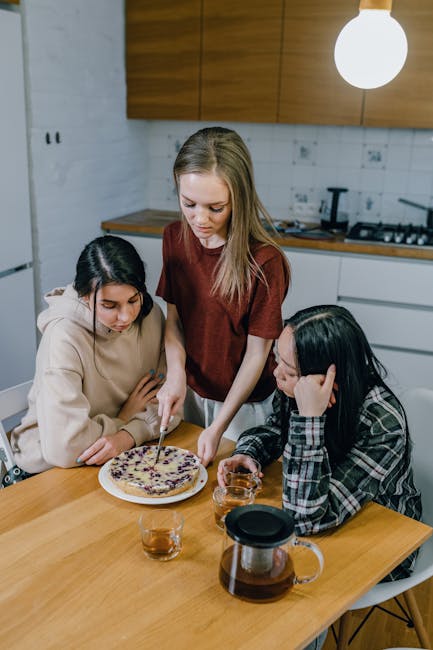Friendship breakups can feel like a punch to the gut. One day, you’re sharing laughs, secrets, and dreams, and the next, you’re left wondering what went wrong. Losing a friend is tough, but understanding how to handle it can help you heal and grow. Stick around, because we’re diving into the emotional rollercoaster of friendship breakups and how to come out stronger on the other side.
Key Takeaways
- Friendship breakups can be as painful as romantic ones, but healing is possible.
- Grieving, processing emotions, and setting boundaries are essential steps.
- Personal growth and new connections can help you rebuild your life.
Understanding Friendship Breakups
The Emotional Impact of Losing a Friend
Losing a close friend can feel like losing a piece of yourself. It’s not just the absence of their presence—it’s the void left in your daily life. You might feel sadness, anger, or even betrayal. These emotions are valid, and they show how much that friendship meant to you.
Friendship breakups can also trigger feelings of loneliness. If you’re struggling with this, check out these techniques for coping with and overcoming loneliness to help you navigate this challenging time.
Common Reasons Friendships End
Friendships can end for many reasons. Sometimes, people grow apart as their lives take different paths. Other times, misunderstandings, unmet expectations, or toxic behaviors can lead to a fallout.
For example, maybe you’ve noticed your friend constantly dismissing your feelings or taking advantage of your kindness. Over time, these patterns can erode trust and connection.
Recognizing the Signs of a Deteriorating Friendship
Before a friendship ends, there are often warning signs. You might notice less communication, fewer shared moments, or a growing sense of distance.
Pay attention to how you feel around your friend. Do you feel drained, unappreciated, or uncomfortable? These feelings can be red flags that the friendship is no longer healthy.

Navigating the Pain of a Friendship Breakup
Allowing Yourself to Grieve
Grief isn’t just for romantic relationships or family losses. It’s okay to mourn the end of a friendship. Cry if you need to. Listen to sad songs. Let yourself feel the weight of the loss.
Acknowledging and Processing Your Emotions
Bottling up your emotions won’t help. Instead, find ways to process them.
Journaling Your Thoughts
Writing down your feelings can be incredibly therapeutic. It helps you untangle the mess of emotions swirling in your mind.
Talking to a Trusted Confidant
Sometimes, you just need someone to listen. Share your feelings with a family member, therapist, or another friend. Talking it out can bring clarity and relief.
If you’re struggling with grief, this guide on healthy ways to cope with grief and loss might offer some valuable insights.
Avoiding Self-Blame and Guilt
It’s easy to blame yourself when a friendship ends. But remember, relationships are a two-way street. Reflect on what happened, but don’t carry the entire burden on your shoulders.

Practical Strategies to Cope with the Loss
Establishing Healthy Boundaries Post-Breakup
After a friendship ends, it’s important to set boundaries. This might mean limiting contact with your ex-friend or unfollowing them on social media. Protecting your mental health should be your top priority.
Finding Constructive Outlets for Your Feelings
Engaging in Hobbies or Creative Activities
Channel your emotions into something positive. Paint, write, bake, or try a new sport. Creative outlets can be a great way to heal.
Practicing Mindfulness and Meditation
Mindfulness can help you stay grounded during tough times. Meditation apps or guided breathing exercises can be a great starting point.
Seeking Professional Help If Needed
If the pain feels overwhelming, don’t hesitate to seek therapy. A professional can provide tools and strategies to help you move forward.

Rebuilding and Redesigning Your Life
Focusing on Personal Growth and Self-Improvement
Setting New Goals
Use this time to focus on yourself. Set goals that excite you, whether it’s learning a new skill, traveling, or improving your health.
Exploring New Interests
Dive into activities you’ve always wanted to try. You might discover new passions and meet like-minded people along the way.
Strengthening Existing Relationships
Reconnect with family and other friends. Strengthening these bonds can remind you that you’re not alone.
Opening Yourself Up to New Friendships
When you’re ready, open your heart to new connections. Remember, not every friendship will be the same, but that’s what makes them special.

Embracing a Supportive Community
Sharing Your Story and Learning from Others
Talking about your experience can be healing. Online forums like this Reddit thread are great places to share your story and hear from others who’ve been through similar situations.
Finding Comfort in Collective Experiences
Knowing you’re not alone can be incredibly comforting. Many people have faced friendship breakups and come out stronger.
Reclaiming Joy Through Connection and Support
Lean on your support system. Whether it’s family, friends, or a peer group, connection can help you find joy again.
Reflecting on the Friendship
Identifying Lessons Learned from the Relationship
Every relationship teaches us something. Reflect on what you’ve learned about yourself, your needs, and your boundaries.
Understanding the Role of Boundaries in Friendships
Healthy boundaries are key to any relationship. Use this experience to understand what you need in future friendships.
Appreciating the Positive Moments Without Dwelling on the Loss
Cherish the good times you shared with your friend. These memories are a part of your story, even if the friendship didn’t last.

Moving Forward with Resilience
Building Emotional Resilience After Setbacks
Life is full of ups and downs. Each challenge, including friendship breakups, makes you stronger.
Cultivating a Positive Mindset
Focus on the good things in your life. Gratitude journaling or daily affirmations can help shift your perspective.
Celebrating Your Progress and Growth
Look back and see how far you’ve come. Celebrate the small victories, because healing is a journey, not a race.
Friendship breakups are hard, but they’re also an opportunity for growth. By processing your emotions, setting boundaries, and focusing on self-improvement, you can heal and move forward. And who knows? The next chapter of your life might bring even deeper, more fulfilling connections.
For more tips on building strong relationships, check out this guide on strategies for maintaining strong friendships.
Remember, you’re not alone in this. Healing takes time, but you’ve got this.
Navigating the Tough Terrain: FAQ on How to Handle Friendship Breakups
What are some common signs that a friendship is coming to an end?
Signs may include consistent one-sided effort, lack of communication, growing apart in values or interests, or feelings of negativity after interactions. Recognizing these signs can help you prepare emotionally for the potential breakup.
How do I approach a conversation about ending a friendship?
Be honest but kind. Choose a private and calm setting to express your feelings. Use ‘I’ statements to avoid sounding accusatory, and focus on explaining why the friendship may no longer be healthy for both parties.
Is it okay to end a friendship without giving an explanation?
While it’s ideal to provide closure, there are situations where it’s acceptable to step away without a detailed explanation, especially if the friendship was toxic or harmful. Trust your instincts and prioritize your well-being.
How can I cope with the emotional pain of losing a friend?
Allow yourself to grieve and process the loss. Journaling, talking to someone you trust, or seeking professional support can help. Focus on self-care and engage in activities that bring you joy and comfort.
Should I try to repair the friendship before ending it?
If the friendship holds value and the issues seem resolvable, it’s worth having an open conversation to address the problems. However, if the relationship is consistently draining or harmful, it may be healthier to let go.
How do I handle mutual friends after a friendship breakup?
Be respectful and avoid speaking negatively about the former friend. Mutual friends may feel caught in the middle, so maintain boundaries and focus on preserving healthy relationships with them.
What if I feel guilty about ending the friendship?
It’s natural to feel guilty, but remind yourself that prioritizing your mental and emotional health is not selfish. Reflect on why the decision was necessary and focus on the positive changes it can bring to your life.
Can a friendship breakup ever be temporary?
Yes, some friendships may rekindle after time apart, especially if both individuals grow and address the issues that caused the breakup. However, it’s important to set realistic expectations and not rely on this possibility.
How do I set boundaries to prevent future friendship breakups?
Communicate openly about your needs and expectations in friendships. Practice healthy boundaries by being clear about your limits and addressing issues early on to avoid misunderstandings or resentment.
How can I rebuild my social circle after a friendship breakup?
Focus on nurturing existing relationships and exploring new connections. Join clubs, attend events, or engage in hobbies to meet like-minded people. Building a supportive network takes time, so be patient and open to new experiences.



